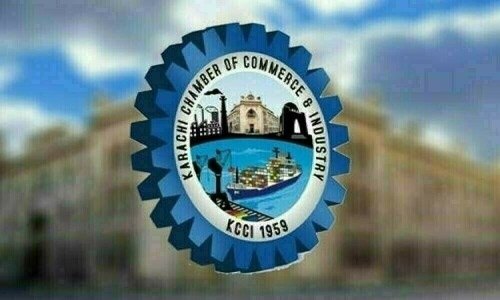Customs and KCCI Collaborate to Boost Pakistan’s Exports
In a joint initiative aimed at reinforcing Pakistan’s export capabilities, the Chief Collector of Customs (Export), Mohammad Sadiq, has confirmed the customs authorities’ dedication to working in tandem with the Karachi Chamber of Commerce and Industry (KCCI). The goal is to encourage smooth and efficient trade operations.
During a meeting held during his visit to KCCI, Chief Collector Sadiq highlighted the enduring and respectful rapport between the customs department and KCCI. He emphasised the critical nature of shared responsibility in tackling the challenges encountered by exporters.
“Our discussions are not intended to place blame but to recognise that enhancements must be a collaborative effort,” he stated. “Export is vital to our economy, and for many years, we have consistently worked to simplify processes for exporters both in Karachi and throughout the country.”
The assembly included notable figures such as Collector of Customs (Export) Irfan Javed, President of KCCI Muhammad Jawed Bilwani, Senior Vice President Zia ul Arfeen, Vice President Faisal Khalil Ahmed, former President Iftikhar Ahmed Sheikh, and members of the KCCI Managing Committee.
Recent Initiatives and Support Systems
Collector Customs (Export) Irfan Javed mentioned the establishment of a 24-hour help desk at the Customs Headquarters, designed to provide immediate assistance to exporters. Contact information is readily accessible, and a dedicated WhatsApp group, comprising the Chief Collector, senior officials, and exporters, ensures prompt resolution of issues.
“We are devoted to addressing concerns swiftly, including coordinating with drug enforcement agencies to minimise unnecessary inspections,” he added.
Irfan Javed clarified that 90 percent of rebate payments are processed through the State Bank of Pakistan, with the federal government holding final approval authority.
KCCI’s Perspective on Export-Led Growth
President of KCCI, Jawed Bilwani, underscored that while remittances are valuable, a sustainable economy must be built on an export-driven strategy to achieve a positive trade balance. “Exporters must receive full support, and any unnecessary obstacles or harassment must be eliminated. Furthermore, individuals engaging in malpractice must be identified and held accountable to maintain Pakistan’s global reputation.”
President Bilwani also brought attention to critical operational difficulties experienced by exporters, such as excessive per-day charges, examination delays, and elevated logistics costs, particularly for perishable goods.
He advocated for enhanced coordination between customs and cargo handlers to ensure rapid clearances, thereby protecting product quality. He lauded the creation of a quick-response WhatsApp group connecting focal persons from each association, calling it a “game-changer” for resolving exporters’ issues in real-time.
Addressing specific concerns, Bilwani pointed out instances where export consignments, once cleared, were subjected to sudden inspections, resulting in delays and confusion. He urged for this practice to cease, asserting that post-clearance inspections undermine exporters’ confidence and shipment schedules.
Sector-Specific Challenges and Recommendations
Focusing on sector-specific issues, Bilwani discussed the iron and steel export sector, which, despite contributing $1.5 billion in exports, is excluded from the Export Facilitation Scheme (EFS) due to allegations of negative value addition. While stressing the need to address malpractice, he cautioned against penalising the entire sector for the actions of a few.
“Genuine exporters must not suffer. Accountability must be precise and fair.”
Regarding the textile sector, which constitutes over 60% of Pakistan’s exports, Jawed Bilwani noted that liquidity challenges have long hindered growth.
The introduction of the EFS has largely alleviated these issues by improving access to funds and increasing order volumes. However, the acceleration of refund processing is still necessary, as delays persist.
He also mentioned that several trade sectors, including leather, surgical goods, and sports goods, have requested an extension of the export period to 18 months under the EFS, a proposal currently under policy-level review. Bilwani encouraged exporters to formally support this initiative through written representations.
In conclusion, both parties reaffirmed their dedication to strengthening Pakistan’s export ecosystem through enhanced collaboration, efficient facilitation, transparency, and collective problem-solving.



Comments (0)
No comments yet. Be the first to comment!
Leave a Comment